I often get the question: “What are YOU hearing over there about the elections?” What a tricky thing to ask someone, which could just as easily apply to the person in front of you at the supermarket. In the modern world of 2020, the resources regarding news and political commentary are limitless, and, whether you’re sitting in your recliner in Sunnyslope, Ariz., or typing this reflection from my kitchen in Barcelona, what you choose to consume frames your worldview.
And yet, here I am wrestling with this question while I also wrestle with my own baggage of being both a veteran of the United States military and a Mennonite missionary.
Each election season, the world is inundated with political campaigns, gossip and smear tactics, commentary from both sides, and, depending on which channels you select on your TV and analysts you follow on Twitter, your worldview is shaped and cultivated to the flavor of their perspectives. Like it or not, it clings to you relentlessly like Cheetos dust. This is not, however, a new problem and by modern societies’ standards, truth is relative.
Welcome to post-modernism, amiright?
Prior to each election season, I intentionally revisit a text written by Christian activist Shane Claiborne titled “Jesus for President: Politics for Ordinary Radicals.” You may remember the iconic and ironic tune titled “Christ for President” written by Woody Guthrie with music by Jeff Tweedy, later made famous by Billy Bragg and Wilco, then covered by the infamous Ragamuffin Stampede (*insert shameless nostalgia*)… the lyrics of the song go like this:
When I read Shane’s book, it’s impossible to separate his reflection on politics and faith from this song in my head. I struggle to reconcile my own political notions from the examples set by Christ, who consistently shed a light on the injustices which plagued the world in His time like poverty, racism, sexism, discrimination, oppression, and corruption within both the church and political sphere — injustices which still poison our world today. Shane reminds us that “our ultimate hope lies not in partisan political options, but in Jesus and the incarnation of the peculiar politic of the church as a people set apart from this world.”
So, how do I apply my passion for peacemaking at the poles?
Now, I know good Christian folks politically on both sides of the aisle and, prior to COVID-19, they could have sat next to each other in church. Within my family, like many others, there are blue folks and red folks…as well as others who lean libertarian, vote for the green party or abstain all-together by choosing to remain unregistered. And, like at all good dinner parties, I often elect to decline comment on politics (whereas declining to discuss religion is not an option due to my chosen vocation).
That said, as a disciple of Christ, I feel moved to shift the questions from “should I vote or not?” and “Which candidate?” to thinking more creatively about the fundamental issues of faith and allegiance. This comes from a place of not wanting to embolden an already-egomaniacal society who has assumed the role of self-appointed world police while living the “in God we trust” dystopian nightmare where:
babies are separated from their parents and living in cages #MigrationInjustice
tax-paying citizens are still without clean drinking water #FlintMichigan
folks are living under tarped make-shift shelters as a 4th post-Maria hurricane season comes and goes #PuertoRico
children of God are being suffocated in the streets and shot on their sofas for the “crime” of being born black #BlackLivesMatter
You want to call yourselves “One Nation under God?” Well, my God doesn’t stand for that nonsense and those certainly aren’t examples set by the Jesus I pursue. To quote Claiborne: “Christianity is at is best when it is peculiar, marginalized, suffering, and at it’s worst when it’s popular, credible, triumphal, and powerful.”
You asked, “What are YOU hearing over there about the elections?” I’m hearing about a nation where the power-hungry are pursuing profit over people. I’m hearing about a nation whose peaceful activists are being silenced with brute force and whose cries for justice are being suffocated by pepper spray. I’m hearing about a nation whose elite continue to rise, but only by kneeling on the necks of the brown and black folks whom Jesus sought to protect.
The truth is that with resources like Politifact and Snopes, the common person is able to discern facts from fake news (and if you aren’t using them, stop reading this reflection and bookmark the sites immediately). Social Media can be a real cesspool of false information and inadequately “researched” talking points at any time, but this is especially true before an election. I implore you to eschew ignorance and pursue truth, but with a heart attuned to justice in the name of Jesus.
In that same sentiment, pray the words of Luke 6:27-28 and carve them into your heart, before it becomes too hardened by the donkey vs. elephant debate:
“Love your enemies, do good to those who hate you, bless those who curse you, pray for those who abuse you.”
In his book, “The Myth of a Christian Nation: How the Quest for Political Power is Destroying the Church,” Gregory Boyd reflects on the concept of the “mustard seed kingdom.” Boyd eloquently reminds me that the heart of Jesus’ teaching was about “the Kingdom of God.” Jesus taught about his topic with more frequency than any other (and it’s reflected in Jesus’s actions as well). As evidenced in the Gospels, when Jesus was present, the Kingdom was there. Boyd said: “The central goal of Jesus’ life was to plant the seed of this new kingdom so that, like a mustard seed, it would gradually expand.” Brothers and Sisters, we are to be nothing less than the body of Christ, which means, amongst other things, that we are to do exactly as Christ did to the best of our abilities. If there’s uncertainty in this, please revisit the following:
The list could go on, and on, and on… If our every thought, word, deed, and (heaven forbid) social media post is to reflect the character of Christ, perhaps we need to revisit the God we see in our world today (ref: Romans 12:2; 2 Corinthians 10:3-5). After Christ’s death on the cross, we assumed His “second body” here on earth. We are what remains and, by that logic, have a greater responsibility to the whole world -- not to a single country that dually celebrates its liberty from faith oppression every Fourth of July while systematically oppressing anyone who worships differently.
You asked, “What are YOU hearing over there about the elections?” Let me tell you, the world isn’t so different over here. A few months ago the youth group of the church we serve took responsibility for the Sunday online church service. It was awesome — they selected the scripture, carefully picked out each worship song, and recorded each prayer and aspect of the service. In an act of solidarity for the political demonstrations occurring globally for the #BlackLivesMatter movement, after careful research and discussion with the youth sponsors, dedicated a section of the service to listing the names of persons of color who died at the hands of police officers in Spain, leaving intentional space for contemplation and prayer. From our perspective, the church service was a great triumph! What a beautiful way to shed light on the very things for which Christ desired justice!
In a conversation later that week, we realized that, while almost universally appreciated and affirmed by our church community, someone didn't received the service the same way. In pointed feedback, one person asked: “Did an adult approve the things the youth published online?” I asked hesitantly, “Why do you ask?” They went on to explain to me why topics like that have no place in the Sunday service because they weren’t about spirituality or from the scripture and, quite plainly, WEREN’T CHURCH.
My only response to them was, from my perspective, matters of justice are matters of Christ. They simply can’t be separated and are both deserving of attention and action.
Unfortunately, this is no isolated incident, and surely similar conversations happen in places other than Barcelona. When one treats “the Church” like a perfect crystal cathedral, only worthy of beautiful four-part-acapella songs, eloquent readings from the right translations of the Bible, and perfectly-preached sermons that affirm your own lifestyle, while turning a blind eye to the beggar on the corner and the hate-speech outside your neighborhood mosque — one’s bound to be disappointed when we talk about the muck of the world. I have to remind myself that we’re reading from the same Bible. We’re worshiping the same Jesus. #GRACEGRACEGRACE. [*Note to self* pray again the words of Luke 6:27-28.]
Shane Claiborne with our very own #AsherFrancisG at a special event, “Becoming Christian Troublemakers,” hosted by Trinity Mennonite Church (Glendale, Ariz.) on May 15, 2017.
You asked, “What are YOU hearing over there about the elections?” Honestly, nothing I should share. I’m no political scientist, nor am I capable of adequately researching politics to a level appropriate for publishing or public consumption. What I can tell you is that I hear the winds rustling the trees in my yard— blowing warmer and warmer as we encroach well into autumn carrying a summer heat (#ClimateJustice). I can tell you that I hear the rock drop to the pit of my stomach every time I read about another person of color being murdered by those meant to serve and protect (#SayTheirNames). What I can tell you is that I hear the cries of the young people in my church wishing to change from the status quo, imploring us to try something different after the reset of a pandemic. I can tell you, I’m listening, but not sitting idly by.
You asked, “What are YOU hearing over there about the elections?” I’ll respond: What are you doing about the cry of The Lamb?


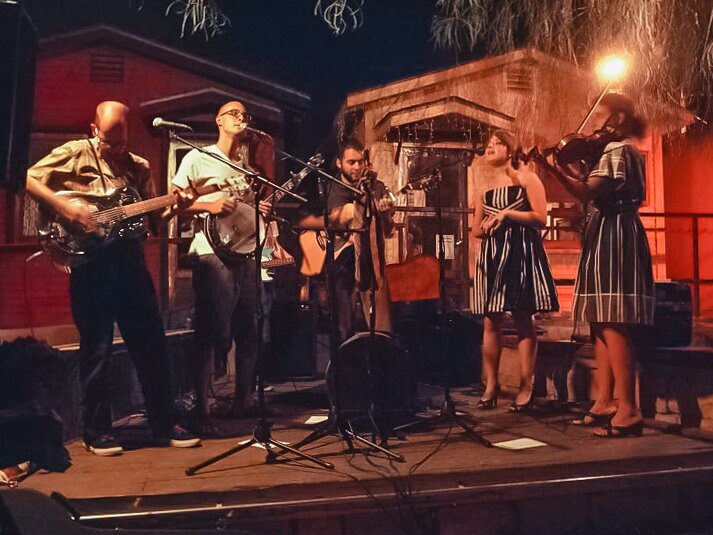
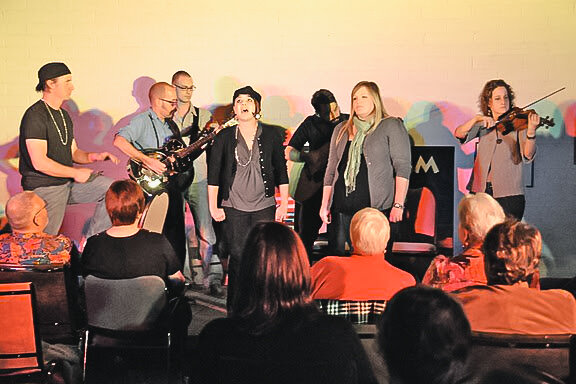
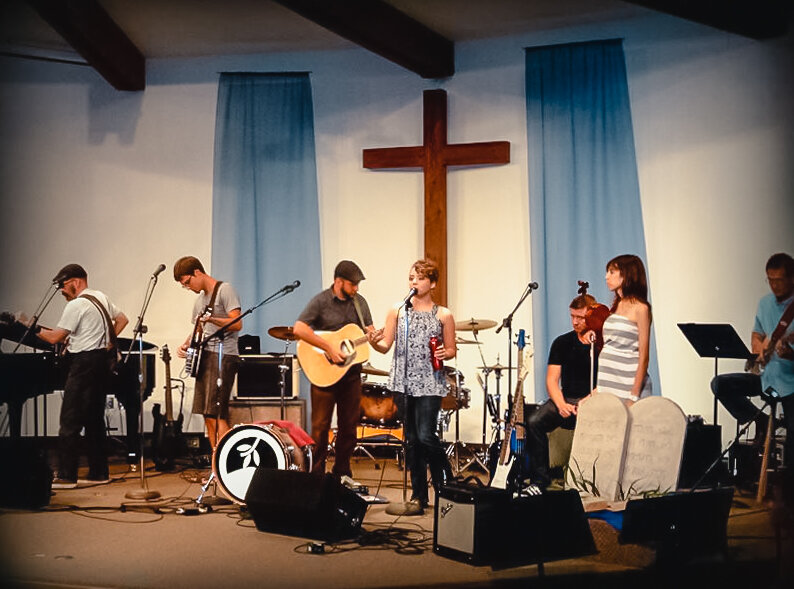

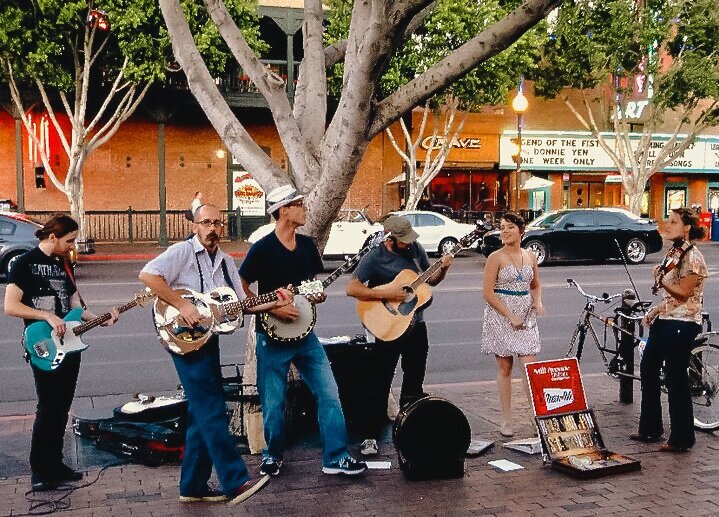
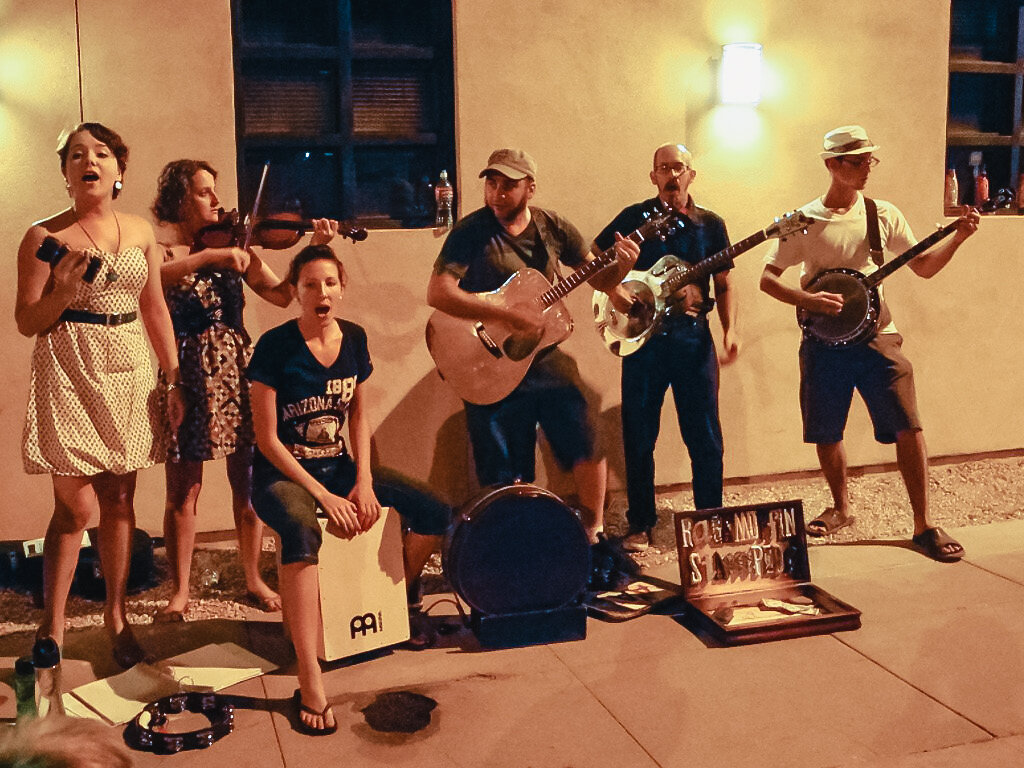

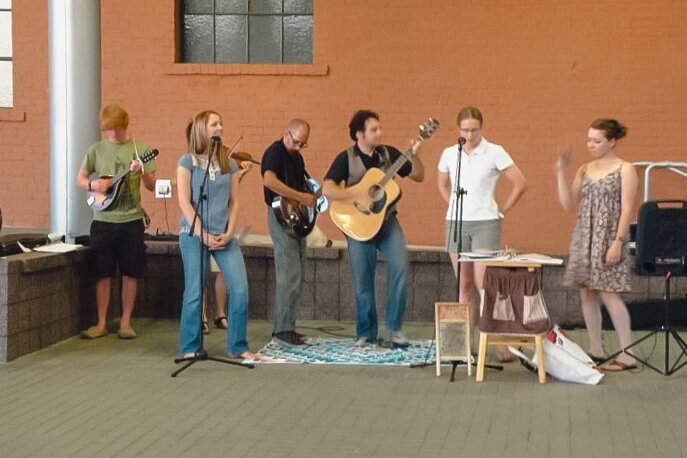
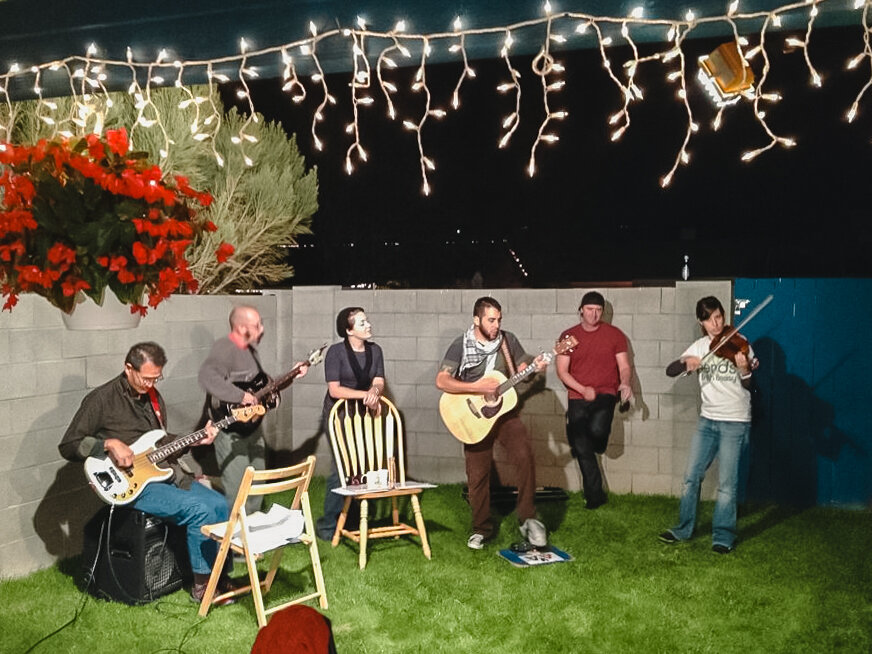
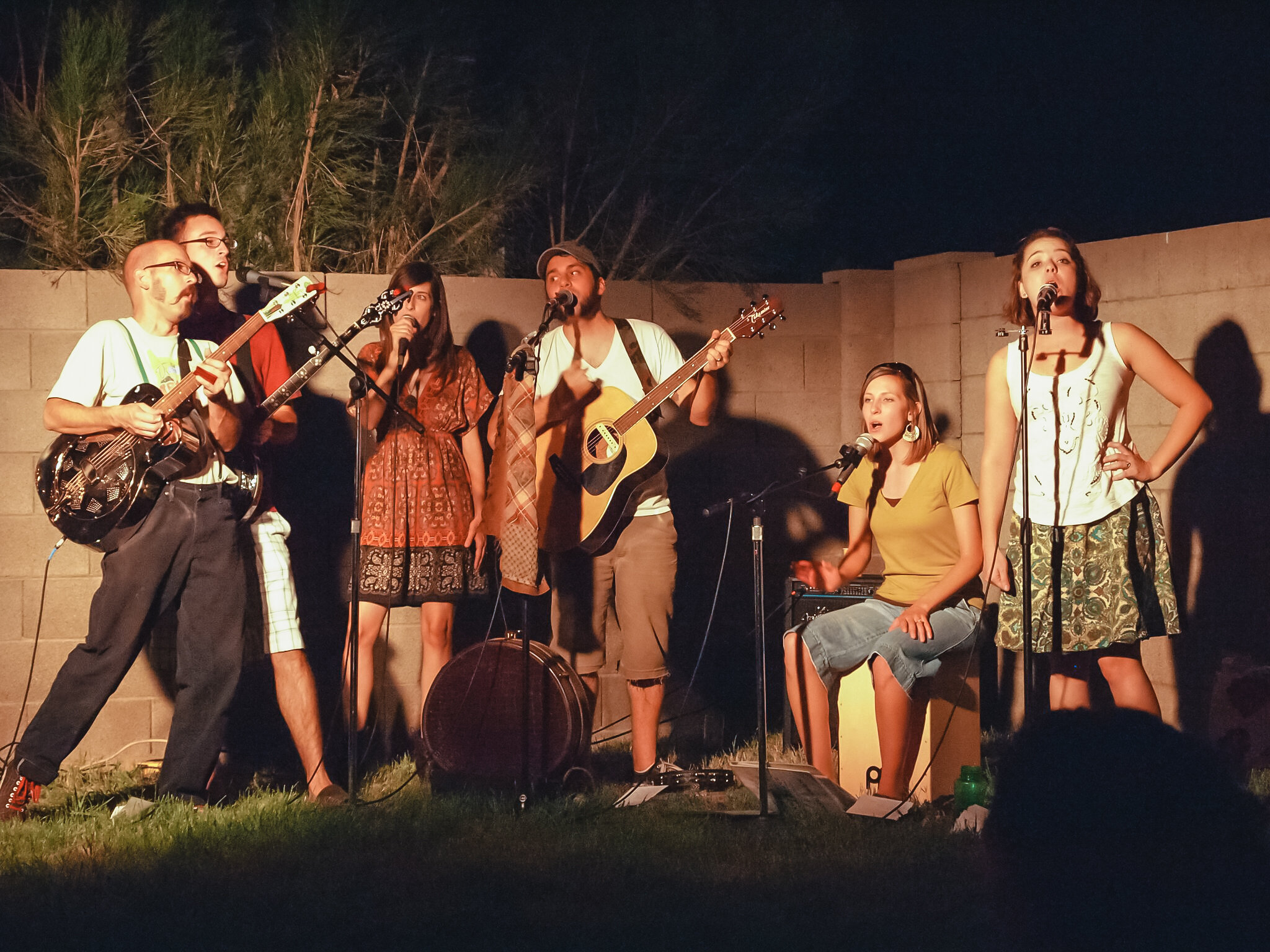
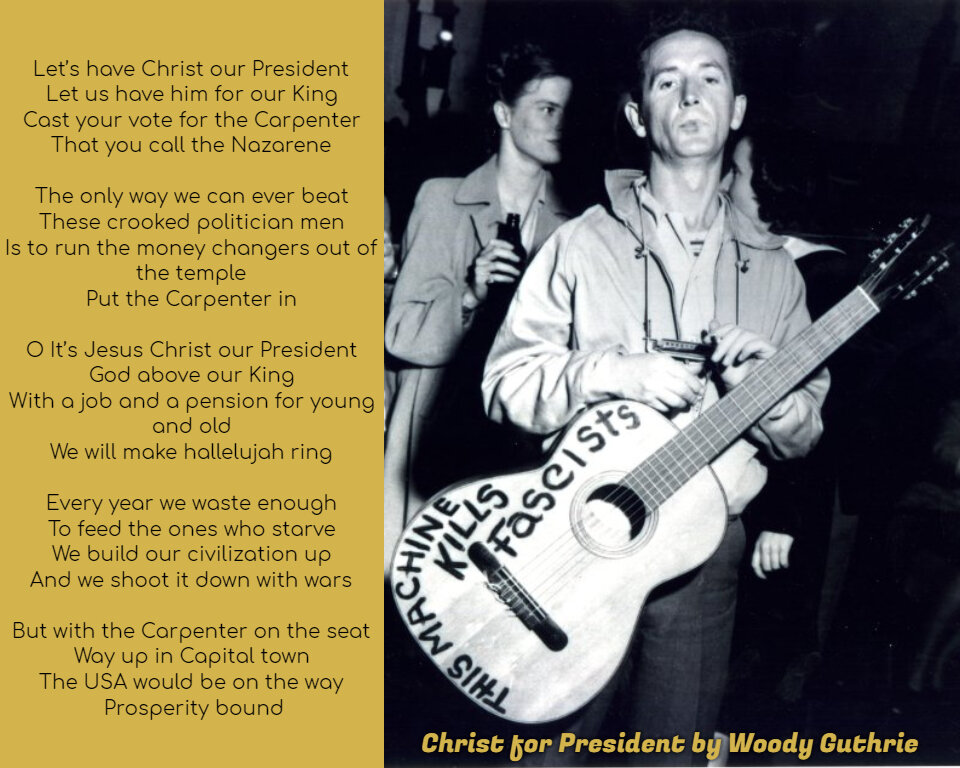










In retrospect, we can pinpoint the spring of 2021 as the time our laughter disappeared — when our four-year ministry in Barcelona began to fall apart. As concerns regarding COVID-19 began to ease, expectations in the local church community changed. Gradually, things arrived at a point where our family needed to step away.
It's hard to laugh when it feels like the world is crumbling around you. It's an act that feels almost audacious considering the state of the world: pandemic losses, church divisions, guilt and anger over White privilege and indirectly benefiting from systemic racism, environmental collapse, rampant economic ruin, and war. How can one laugh when the world we live in is so far removed from the one Jesus describes throughout the gospels?